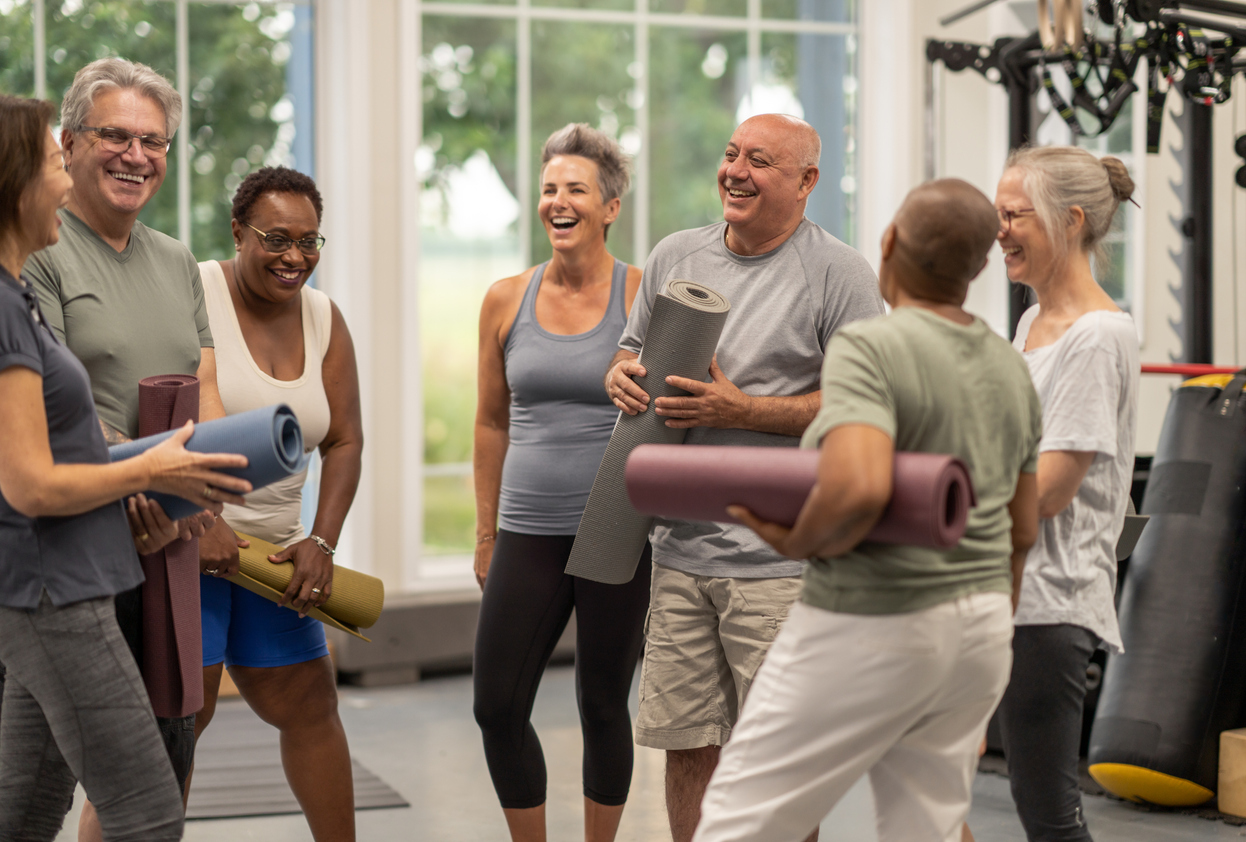Yoga: A Practice for Everybody and Every Body

It has been said that when you breathe, you are practicing yoga. This is true. Yoga is much more than physical postures; yoga is a way of life and can be practiced on and off the yoga mat. Yoga is the union of body, mind and soul. It is an attitude of presence and self-acceptance. Yoga provides an opportunity to heal our body, keep our body fit and our mind calm. Letting go is the hardest posture.
Breathing intentionally and paying attention to being in the present moment allows you to release stress which may have been building up without you even knowing it. Breathing techniques learned in yoga activates a relaxation response and can improve blood circulation, decrease the arousal of the sympathetic nervous system (the “fight or flight” system) as well as activate the parasympathetic nervous system which assists with relaxation and can provide a sense of calm. It is about placing your attention on the current of your breath underneath various yoga postures.
Myth buster: You do not need to be flexible to practice yoga. Many people think that yoga is about being able to touch your toes or put your ankle behind your head, but yoga is about breathing intentionally and having a desire to quiet your mind, calm your nervous system and provide a sense of peace within, listening to your body and letting go of expectations.
Yoga can also be very meditative. When we practice yoga it can enable us to realize self-acceptance and self-love. This is where your yoga practice can be taken off your mat into everyday life.
Yoga is about mindful movement. All postures can be modified which provide an opportunity for everybody to experience the benefits of a yoga practice. Yoga is accessible to all bodies and all people of all abilities. It is not about extreme movements and postures, it is about moving your body with your breath in an intentional way that feels good for you in that moment.
Yoga is incredibly functional and therapeutic because it can be corrective when it comes to muscle dysfunction. It does not replace medical care, but is highly effective in addressing imbalances, gaining strength, decreasing tension and increasing range of movement and reducing pain. Yoga can help restore alignment after injury and also help prevent injury or re-injury down the road. Practicing regular postures can provide an opportunity to improve your ability to perform daily activities.
Yoga is considered a respected therapy in the health care industry and is a very effective form of restorative exercise which assists people who are recovering from physical and/or emotional Injuries. One-to-one yoga therapy assessments are undertaken by a qualified instructor to identify range of movement, strength, symptoms of pain, sleep deprivation, stress and depression.
All in all, a Yoga practice can be very empowering to individuals to progress toward improved health and well-being and guide you towards a deeper connection to your physical, mental and emotional body. If you are suffering from injuries or conditions you could benefit from an assessment with a trained Yoga therapist who can create a personal program to ensure the practice safely address the particular needs of the individual, including appropriate postures and breathing techniques as well as other mindfulness strategies such as meditation.
About the Authors

Josie has been working in the legal industry since 1987. She joined Oatley Vigmond in 1995 as a senior law clerk, having developed expertise in demonstrative evidence applications, particularly in the areas of mediation and trial preparation. Her desire to provide hands-on support to clients and their families led her to become an accident benefits specialist. Now, she provides Oatley Vigmond clients with prompt and effective assistance to access the insurance benefits to which clients are entitled. She helps assemble a reliable community rehabilitation and long-term care team for our clients. She’s a licensed paralegal with the Law Society of Ontario, and holds a certificate in rehabilitation management from Seneca College.
